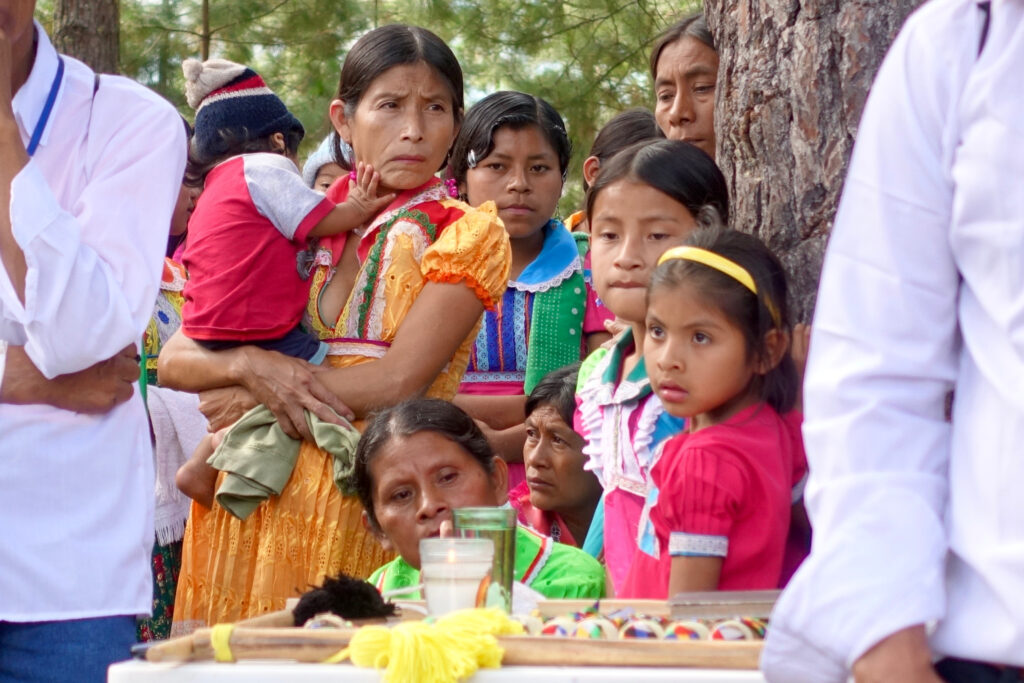‘Ecofeminism is about respect’: the activist working to revolutionise west African farming
“It’s the Indigenous knowledge and the practices that have always supported food sovereignty and this knowhow is in the hands of the women … Ecofeminism for me is the respect for all that we have around us.” – Mariama Sonko, NSS.
Thousand Currents partner Nous Sommes la Solution (NSS, We are the Solution) is an ecofeminist movement of more than 500 rural women’s associations in Senegal, Ghana, Burkina Faso, the Gambia, Guinea-Bissau, Guinea, and Mali. The movement promotes sustainable agroecology and fights large-scale industrial farming. Image courtesy: Ricci Shryock, The Guardian.
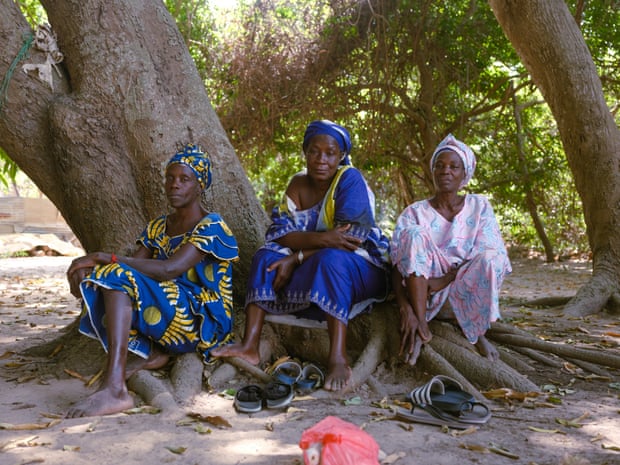
Charity appeal in Guatemala, where the fight for land and water rights is a battle for survival
“In eastern Guatemala, Comundich is “in the eye of the hurricane,” according to Silvel Elías, an agricultural development professor at Guatemala’s University of San Carlos. “They’re fearless,” said Elías, who consults with international grant-makers and works with community groups across Guatemala. He said that the organisation is one of the most effective in the country due to its low overheads, its commitment to long-term planning and women’s leadership, and the enormous trust it built with communities by involving them in decision-making.“
Global Greengrants Fund partner Coordinadora de Asociaciones y Comunidades para el Desarrollo Integral del Pueblo Ch’orti’ (COMUNDICH, Coordinator of Associations and Communities for Holistic Ch’orti’ Mayan Development) is transforming deep-rooted fear of Indigenous Ch’orti’ identity into pride, unity and strength while reclaiming ancestral lands in Guatemala. Image courtesy: COMUNDICH.
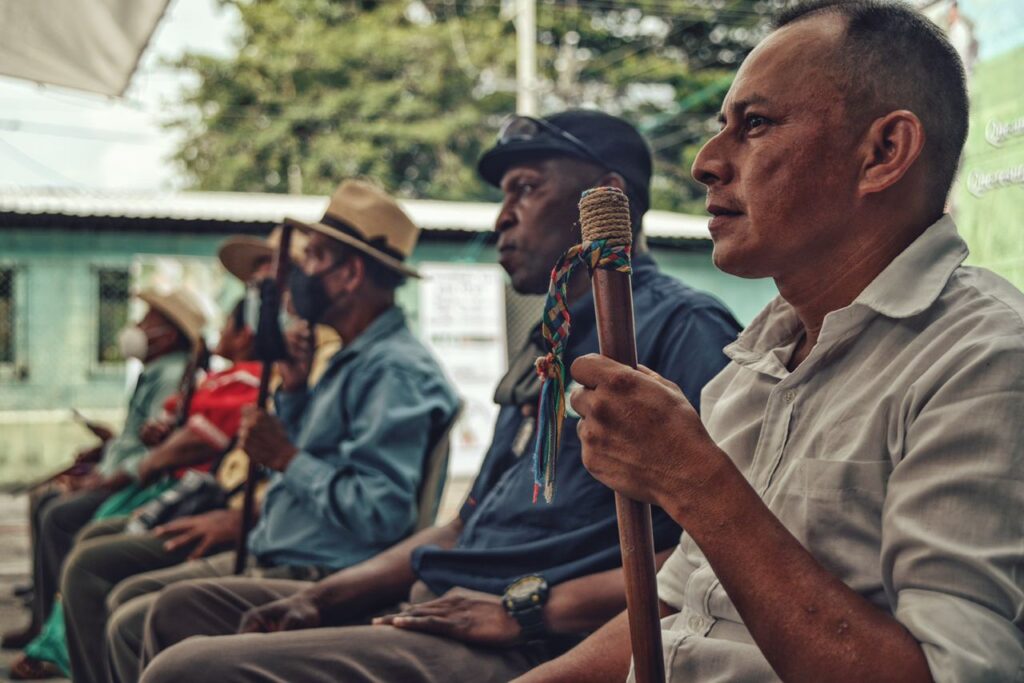
‘Local is better’: battered Haiti looks to empower peasants to fight climate crisis
“In nature everything is connected to one other. To disturb one is to disturb all.” – Jean-Baptiste Chavannes, founder of the MPP.
“A local approach is better because it creates direct employment, values local knowledge, skills, and resources. Locals living in the territory will be more involved because they know the severity of the problem better than those who come from outside.” – Jusléne Tyresias, MPP’s Program Director.
Grassroots International partner Mouvman Peyizan Papaye (MPP, Peasant Movement of Papaye) has been working at the intersection of agrarian and environmental issues since 1973. It is transforming the Haitian food system into an engine for economic development, social justice, and ecological resilience. Image courtesy: Grassroots International.
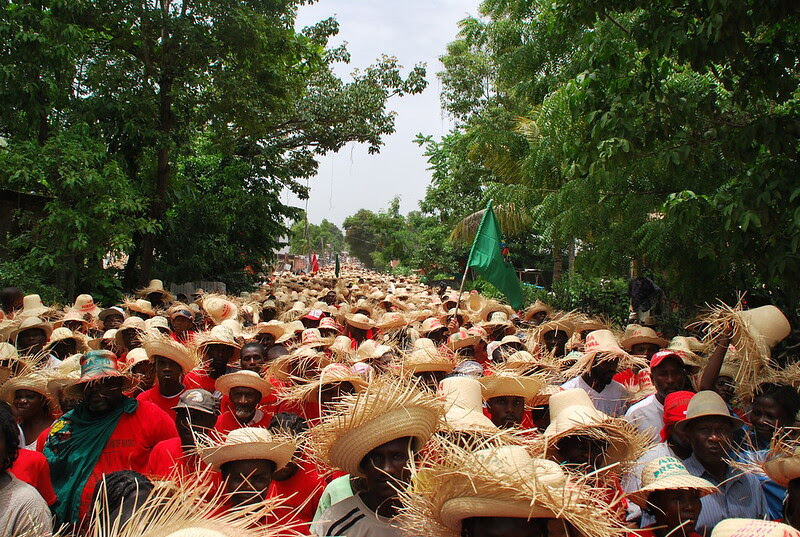
Rethinking Scale in Climate Solutions
The ecological crisis requires urgent, coordinated, and impactful solutions on a level unprecedented in human history. Yet, philanthropy has often taken too narrow of a view of “scale” when it comes to climate change, focusing on scaling particular strategies, with the goal of creating quantity quickly.
However, scale needs to be about more than how fast something can grow or how many people a solution reaches, more than mere numbers. And grassroots movements have sophisticated approaches for scaling impact, which ensure that a multiplicity of strategies will be relevant, resilient, adaptive, and equitable. Because grassroots movements are interconnected groups, led by those most impacted by a problem, they shift power and change culture: Instead of tethering scale only to a result or fidelity to the original template, grassroots movements use methods of scaling that ensure the depth and durability of impact, multi-solving across social, political, and economic challenges.
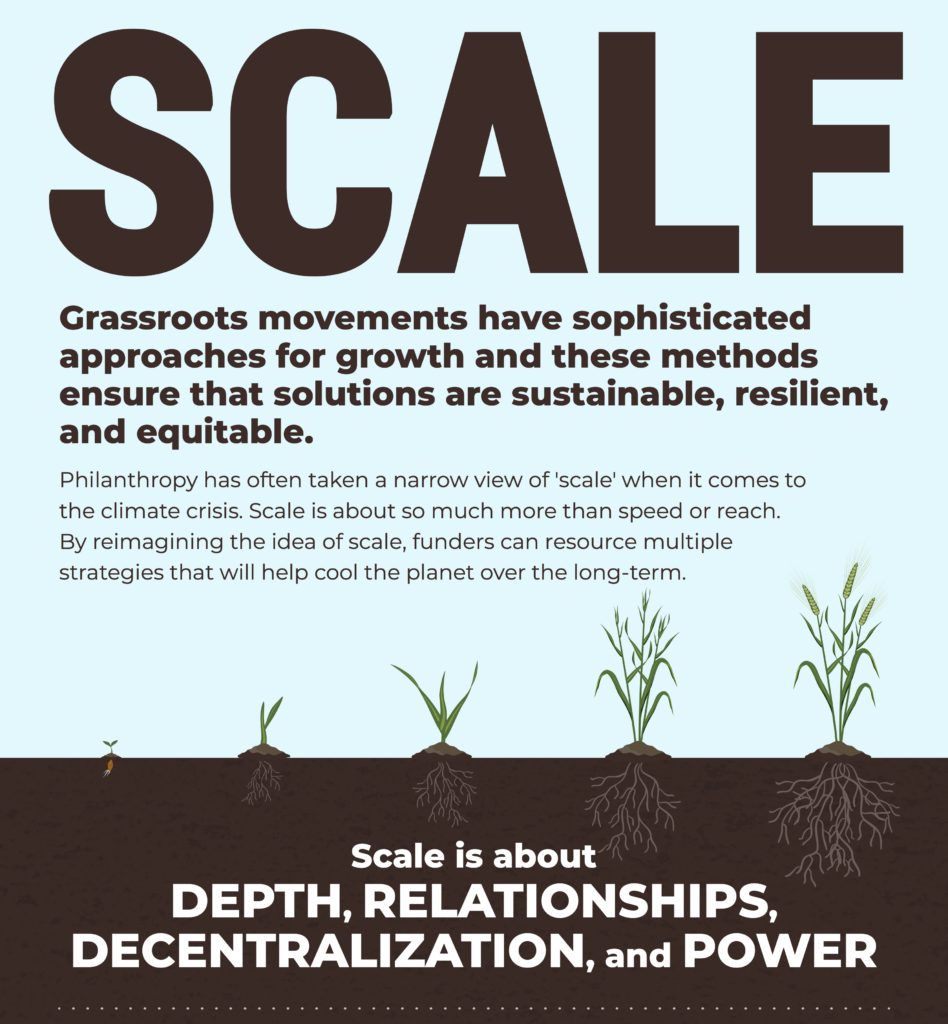
Coronavirus pandemic shows we need new ways to look after the Earth and each other
Maybe this is Earth’s wake-up call. The coronavirus is exposing our dysfunctional leadership and sparking new ways of caring for each other and the planet.
Perhaps we can refocus on collective care, cooperation, and community. Whatever unfolds, the best investment we can make is in the communities already fiercely protecting the health of the Earth and her peoples.
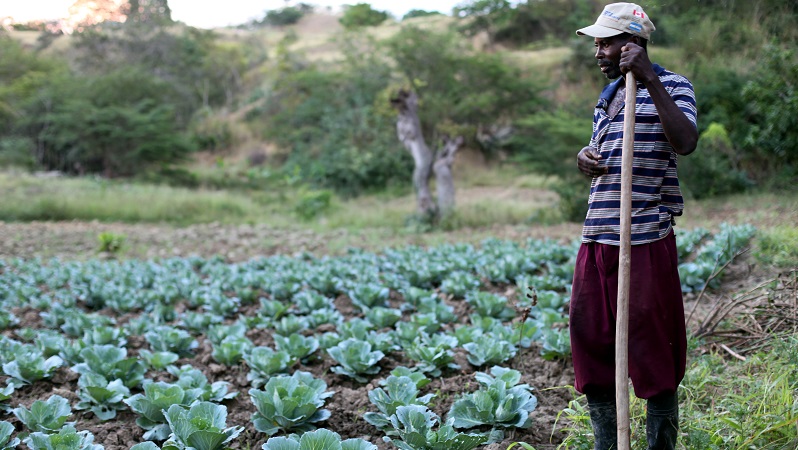
Earth Defenders Increasingly Being Killed; Funders Can Step Up!
While the need for action is high and threats are ever-present, only a fraction of global funding supports human rights defenders. Natural resource defenders constitute over 50% of all human rights defenders’ deaths, yet they receive only 3% of private funding globally. Support is often crisis-centered in the form of rapid-response emergency funding after the threat or violence has taken place, rather than long-term funding to aid movement-building and resilience.
Read the full article on the Human Rights Funders Network blog
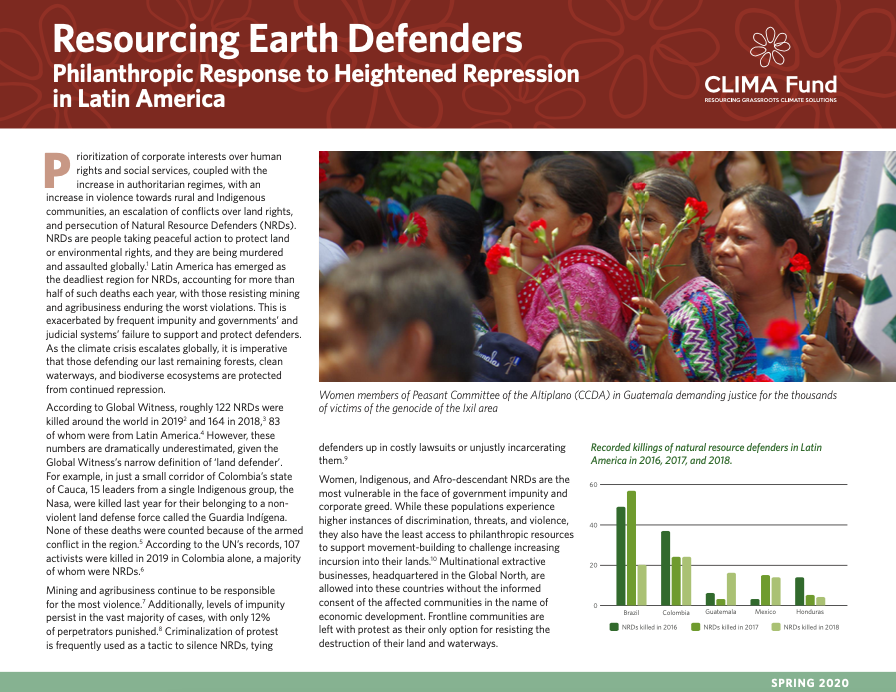
Cultivating Change Amidst Collapse
As individuals alone we cannot make durable change on massive and complex issues like the ecological crisis or the current global pandemic. Personal habits like recycling or limiting airplane travel—or complying with quarantine orders—are good practices, but they alone will never result in the changes we need to save ourselves from disaster. Carbon dioxide levels will continue to rise, increasing numbers of species are on the verge of extinction, and our health systems are in crisis: We must lean into strategies that honor our interdependence.
Like the pandemic, our planet’s ecological crisis is a collective challenge that demands a collective response on a scale and in a timeframe never before seen by humanity. Indeed, even the crises are related, as we are likely to see more frequent pandemics due to climate change. These are not issues that can be “solved” with money, technology, or government alone. Our ability to meet the overwhelming scale of the ecological crisis, along with other systemic crises, will require building movements and decentralized networks that engage large numbers of people and organizations, promote trust over transactions, and embrace an emergent approach to learn their way into the future.

With peoples’ protests mounting, why are philanthropists lagging behind on climate change?
People are taking to the streets on climate change around the globe, tired of inaction by public officials and risking arrest to intentionally cause disruption. It’s time to step back, bring out the wide angle lens, and aggressively pursue a paradigm shift to match peoples’ climate actions in the philanthropy sector.
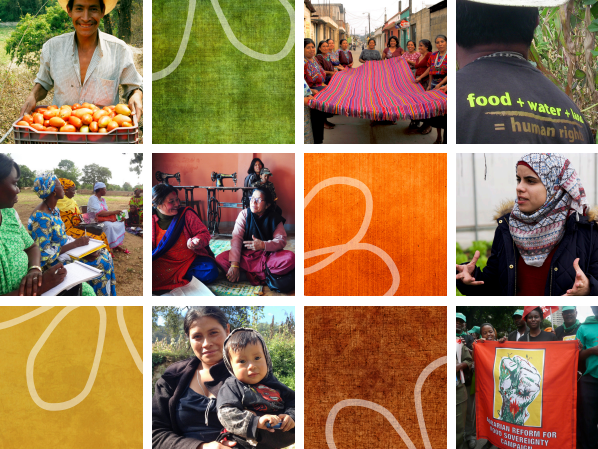
Climate justice is possible when…we listen to the grandmothers
“I know that the efforts of community organizers, policy advocates, environmental litigators, and progressive alliances, coalitions, and networks fighting for our future will win.”I know that the efforts of community organizers, policy advocates, environmental litigators, and progressive alliances, coalitions, and networks fighting for our future will win.
This is why we choose to spend our time and our organizations’ attention on preparing, resourcing, and elevating what grassroots leaders tell us is possible; that is breathable air, drinkable water, edible food, and the fundamental human right to dignity, health, and a livable planet for us all.
When grandmothers become community scientists, when neighborhoods unite across race and class differences, when grassroots groups create movement infrastructure, and when funders collaborate with each other and with movements in solidarity, we – all of us – make climate justice possible.” – Rajasvini Bhansali
Perhaps we can refocus on collective care, cooperation, and community. Whatever unfolds, the best investment we can make is in the communities already fiercely protecting the health of the Earth and her peoples.
Read the full article on the Environmental Grantmakers Association blog
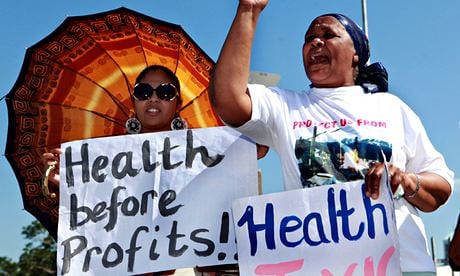
Why we need collaborations to tackle climate change
In the current political moment, one where we can no longer trust politicians and international actors to have human compassion and protect our rights to a healthy planet, who do we trust?
Powerful movements and innovative solutions are needed to overcome these challenges.
Local communities around the world invest unmatched time, resources, and energy in cultivating, stewarding, and defending the landscapes and territories that provide for their livelihoods and wellbeing. These local actors hold knowledge of their ecosystems and have developed culturally appropriate institutions for the management and stewardship of their natural resources that are critical to resilience in the face of disturbance, scarcity, conflict, and crisis.
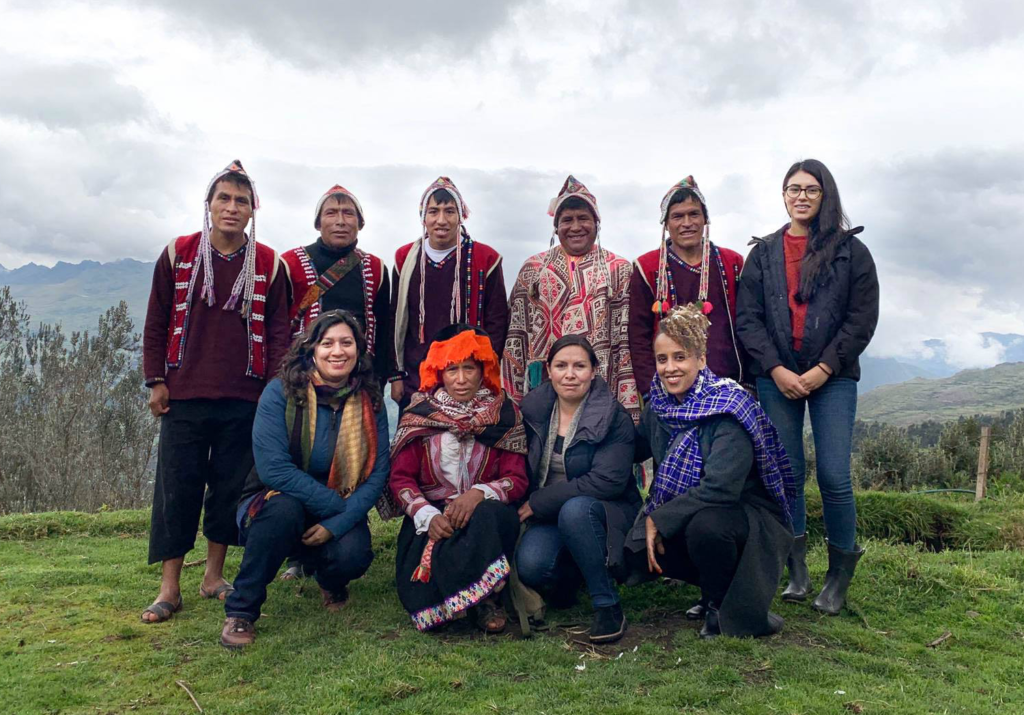
Climate Action Rooted in People, Soil and Mother Earth: Climate Justice
When climate action is grounded in the experience and leadership of frontline impacted communities and connected by movements that have a clear analysis of the root causes of climate disruption, the results are powerful.
Throughout the globe, communities are weaving extraordinary solutions and connections, and building webs of resistance. Often they are accomplishing this on beat-up computers and cell phones, unpaid staff, sporadic electric power, and barebones resources. One can’t help but wonder: what greater things could they accomplish if they weren’t mobilizing under the stranglehold of a shoestring budget?
Read the full article on the Human Rights Funders Network blog
